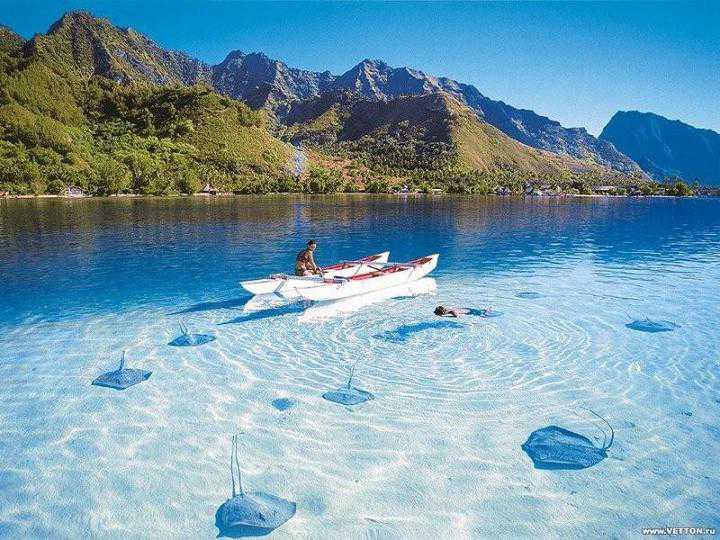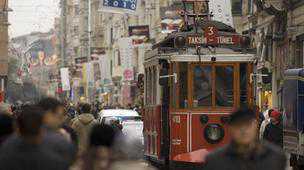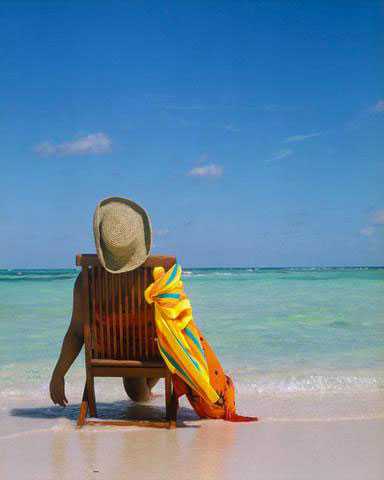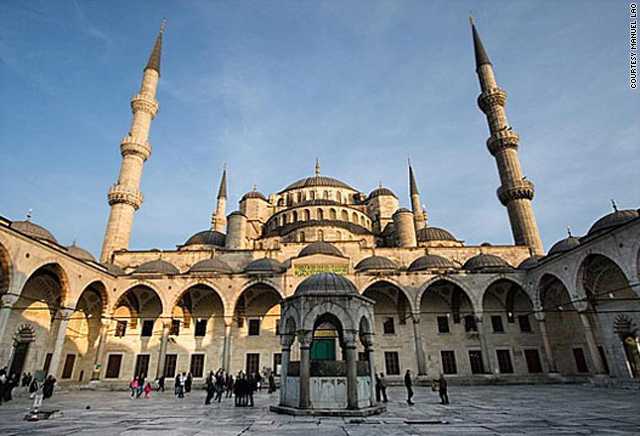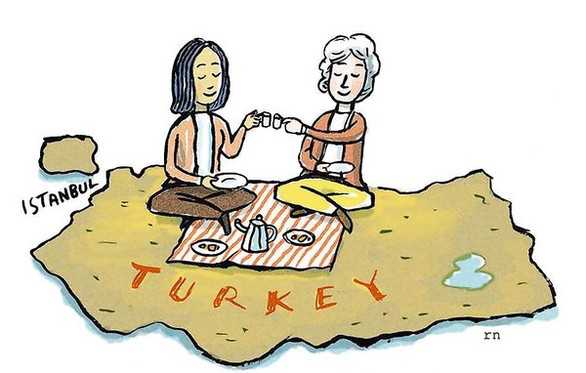By Jodi Hilton
| Globe correspondent
JODI HILTON FOR THE BOSTON GLOBE
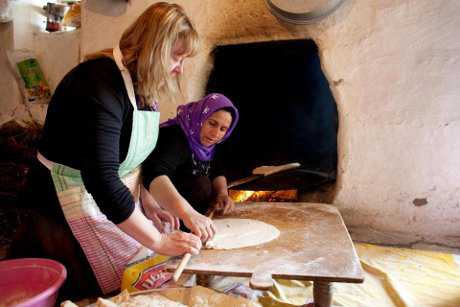
YUVACALI, Turkey – Wearing an embroidered lavender headscarf popular with Kurdish women, Pero Salva, 45, rolled out a thin, round circle of dough before moving it to a crackling hearth where it quickly bubbled and toasted. Visitors watched attentively before making their own attempts. Jenni Meaney, 55, a multimedia producer from Melbourne, Australia, and an experienced bread maker, struggled to learn the special rolling technique in which the tortilla-thin bread dough is rolled and simultaneously flipped over a thin, wooden stick. Both women laughed at Meaney’s attempt, which, though clumsy, produced a tasty result.
In the hardscrabble village of Yuvacali in southeast Turkey, a hundred families eke out a living on barely a dollar a day raising livestock and vegetables. Most are Kurds, the country’s largest and poorest ethnic minority. Like much of the region, the people here have suffered through years of ethnic violence, poverty, and drought.
Since 2009, the Salvas and another family, under the umbrella of Nomad Tours Turkey, have been hosting guests from Europe, Australia, and the United States in their mud-brick home.
Nomad Tours Turkey is the brainchild of Alison Tanik, 45, an Englishwoman who lived and worked in Istanbul for 15 years before marrying and moving here to her husband’s ancestral village. Early on, she decided she wanted to start a charity project to help improve the lot of struggling shepherds and farmers. So, she said, she conducted a door-to-door survey, in which she discovered some startling statistics, including a 50 percent illiteracy rate and a 20 percent infant mortality rate.
Tanik also learned that the Kurdish children, who didn’t learn Turkish at home, were struggling in Turkish-only classrooms, which led to learning problems and a high dropout rate. Thinking to build a preschool, Tanik raised $33,000. Her project failed, however, when government officials refused her permit request. “They wanted to know why is this woman interfering, and why is she living in this village in the first place,’’ she said.
A second project, in which village women produced and sold hand-knit ponchos to an exclusive Istanbul children’s boutique, was “better than nothing, but it didn’t change anyone’s life,’’ Tanik said.
Then, out of the blue, a call came from an Australian travel agency. Intrepid Travel was looking for a local family to host groups in the nearby city of Sanliurfa. Thinking on her feet, Tanik said, “Well, we’re not exactly in the city center, but we’re just 60 kilometers outside . . . would you be interested in staying in a small village?’’
Intrepid specializes in responsible and sustainable tourism, said group leader Mark Walgermoet, who was guiding four travelers overland from Amman, Jordan, through Syria to Istanbul. “We offer out-of-the-box trips’’ and look for opportunities to support projects that benefit the wider community, he said.
Jared Cohen, a Boston University law student from Cambridge, visited Yuvacali in 2010 as he was traveling through Turkey with Intrepid. “I was able to make a really sustained personal connection with villagers in a very remote part of the country and see a culture that it would have been impossible to find and learn about on my own,’’ he said of the experience.
“For me, it was an experience difficult to find and impossible to forget,’’ said Cohen. He said that he got a glimpse into a world unlike any he would have if he just had stuck to the main cities and tourist attractions.
The village of Yuvacali now hosts up to 160 guests a month. Donations help fund social projects, which include equipping a kindergarten (which the government eventually built on its own), running a dental hygiene program for children, and planting fruit trees.
Nomad Tours Turkey also offers off-the-beaten-path tours to visit nomadic families, Kurdish-majority cities, and a religious shrine in northern Iraq. In nearby Mardin, an architectural gem of a city, Tanik is in the process of organizing additional home stays.
She plans on keeping the operation small to prevent the village from being overrun by tourists or having its character changed. Guests are asked to dress modestly and observe some basic rules. Pants are considered inappropriate for women, so long, flowery skirts are provided. Headscarves are worn by local women but optional for guests. Additionally, guests are discouraged from giving money or candy to children so they don’t learn to beg, a problem in some Turkish villages.
During the day, Tanik guides a tour of the village’s settlement mound, a tall hill erupting from the grassy plain. Artifacts from the mound prove continuous habitation for thousands of years. In springtime when wildflowers grace the undulating landscape, nomadic shepherds pitch their tents on the far side of the mound, a 10-minute stroll from the Salva home. Visitors can see the local schools and kindergarten, learn how farmers thresh wheat, and in the late afternoon, escort the village shepherds when the cows come home.
For the Salvas, home stays have enabled them to send one of their sons to a private school where he is preparing to become a lawyer, “which would be undreamt of before,’’ said Tanik.
At dinnertime Salva placed dishes of locally produced cheese, chicken, rice, eggplant, and roasted peppers, fresh parsley and mint on a tablecloth laid on the carpeted floor. There was also homemade ayran, a salty yogurt drink. After dinner, sugary tea was served in tulip-shaped glasses.
In the evening, the Salvas rolled out wool-filled mattresses onto the carpeted floor. Comforters were stuffed with wool from the local sheep. Meaney, who visited in March, said she slept like a baby and the bedding was “incredibly warm.’’ During summer months, guests sleep on the roof, under the stars, protected by mosquito nets.
After a homemade breakfast of Salva’s still-warm flatbread, sheep’s milk cheese, olives, cucumbers, honey, and tea, her husband, Halil, helped clear the guests’ plates.
“Our meals were bountiful and lovingly prepared,’’ said Meaney. “But for me, the best thing was being able to stay with a family. The family was so welcoming and inclusive.’’
If you go…
Nomad Tours Turkey
011-90-533-747-1850
www.nomadtoursturkey.com
The cost of the home stay (full-board) is about $40 per person, per day.
Jodi Hilton can be reached at [email protected].

